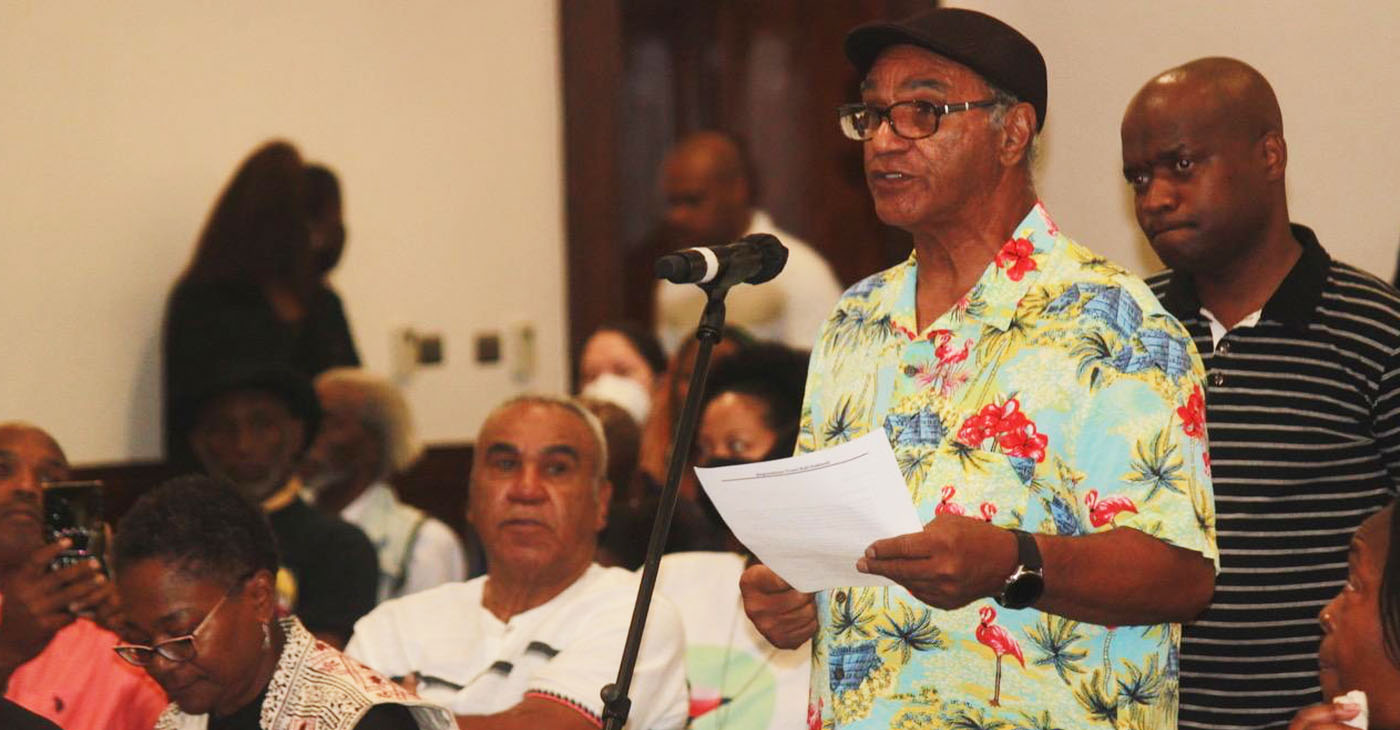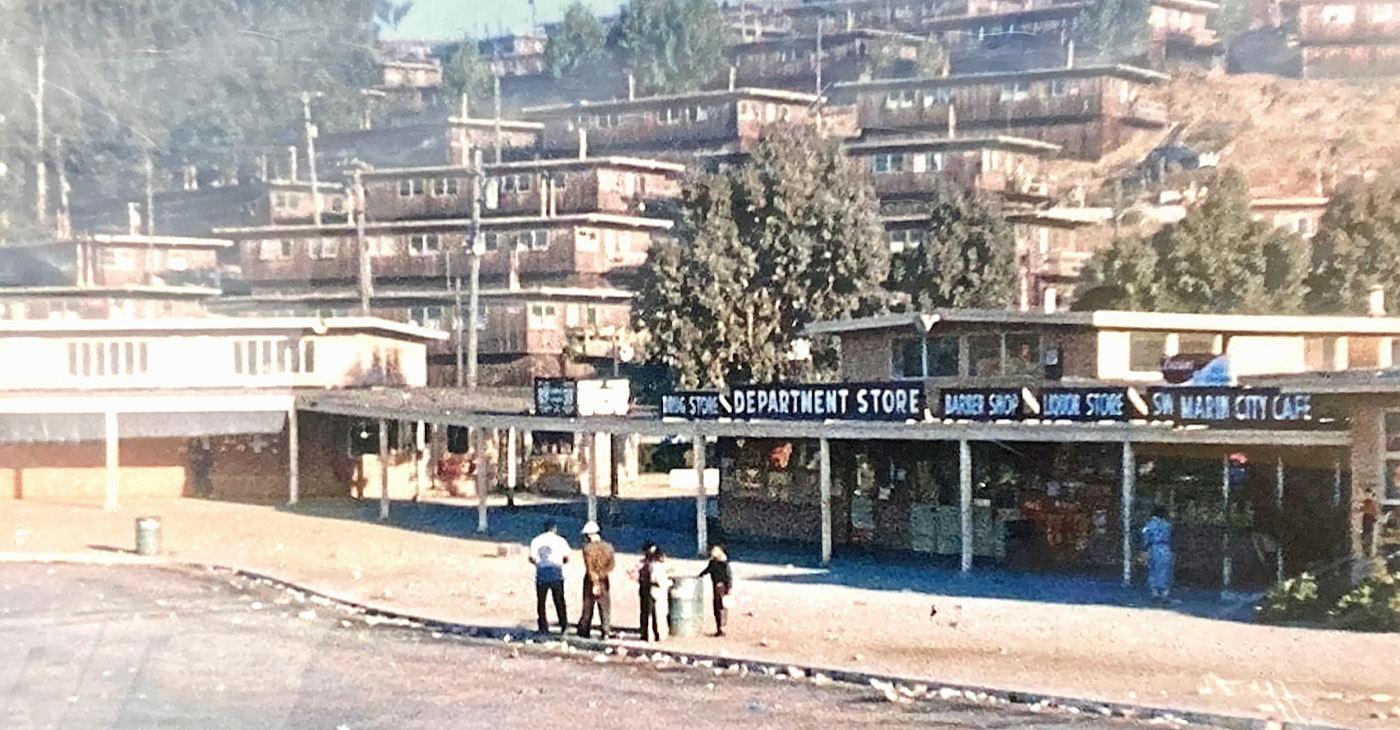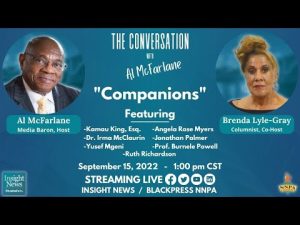Black History
Reparations Task Force: Freedmen’s Bureau Essential for Compensating Slave Descendants
The members of the California Task Force to Study and Develop Reparations Proposals for African Americans are preparing the pretext for recommending a modern-day Freedmen’s Bureau that will be critical for compensating descendants of enslaved Blacks for the injustices of slavery and Jim Crow discrimination they suffered.

By Antonio Ray Harvey
California Black Media
The members of the California Task Force to Study and Develop Reparations Proposals for African Americans are preparing the pretext for recommending a modern-day Freedmen’s Bureau that will be critical for compensating descendants of enslaved Blacks for the injustices of slavery and Jim Crow discrimination they suffered.
Task Force Chairperson Kamilah V. Moore explained during the group’s two-day meeting at San Diego State University (SDSU) that the proposed California American Freedmen Affairs Agency (CAFAA) would identify past harms and prevent future occurrences.
Moore said that the agency would be “a main office or headquarters,” with “specialized offices and branches” dedicated to addressing specific atrocities that have “snowballed over generations.”
“The purpose of this new agency would be to identify how past state-sanctioned atrocities have perpetuated and created new iterations of these badges and incidences of chattel slavery,” Moore said.
“And how (the agency can) eradicate and prevent future … incidences from forming and prospering against the American freedman or descendant community,” she added.
The CAFAA would facilitate claims for restitution and would set up a branch to process claims with the state and assist claimants in proving eligibility through a “genealogy” department.
In addition, the CAFAA would implement the recommendations made by a reparations tribunal to settle claims for past harms and set up an office of immediate relief to expedite claims.
Task force member and civil rights lawyer Lisa Holder said the proposed agency bears a resemblance to the federal agency set up on March 3, 1865, two months before the official end of the Civil War.
The Freedmen’s Bureau, as it was named under a series of post bellum legislations, was originally designed to settle the formerly enslaved on land confiscated or abandoned during the war.
The Freedmen’s Bureau, officially known as the Bureau of Refugees, Freedmen and Abandoned Lands, assisted formerly enslaved people in acquiring relief, housing, employment, education, medical aid, and equality under the U.S. Constitution.
Holder said that the “original Freedmen’s Bureau” was “interrupted and disrupted” when it could have been a “powerful” institution 100 years later if it “had been allowed to survive and thrive,” she said. According to the Freedmen’s Bureau National Archives at www.archives.gov, the bureau ceased operations in 1872 due to the lack of funding and “deeply held racist attitudes.”
Holder added that the CAFAA should be the “guiding light” behind reparations efforts in the state of California.
“One of the things I like about this notion of a Freedmen’s Bureau is that it’s in keeping with this concept that reparations and damages for human rights abuses have to create systems that end the harm that causes the harm,” Holder said. “It is also supposed to create institutions that make the community whole in a sense that they get you up to a place where you were before the harm happened.”
Elmer Fonza of Las Vegas and his elder brother Medford Fonza, who lives in the Los Angeles area, have attended task force meetings and activities around the state. Their great-great-great- grandfather Nelson Bell was brought to California as an enslaved person around 1850 to mine for gold. He was later freed.
Bell purchased land in Coloma, 48 miles east of Sacramento, but the family lost it all after he died in the 1870s, the brothers told the task force at the September meeting in Los Angeles. Elmer Fonza believes that the property was confiscated through unscrupulous means.
The Fonza family, who visited and toured Gold Country last summer for the first time in their lives, wants to know how they can benefit from an agency such as CAFAA.
“Now, as we gather more evidence, we want to file a claim through reparations to see if we lost anything or could gain anything,” Fonza said. “We want to know if such an agency (CAFAA) could help us facilitate the process. Right now, we don’t know how that would be done.”
How the CAFAA can be used to determine reparations eligibility for Black Californians has been a topic of public discussion by Black grassroot organizations started before the task force was formed in May 2021. Now it can be addressed. Thanks to new laws that can help reparations eligibility, supporters say.
For the first time in California and American history, a specific category of data collection will be required for African Americans who are descendants of persons enslaved in the United States and living in California, starting with the state’s 2.5 million employees.
California is the first state to require its agencies to present a separate demographic category for descendants of enslaved people when collecting state employee data. Gov. Gavin Newsom’s 2022-2023 budget trailer bill — Senate Bill (SB)189 — includes language directing state agencies to disaggregate or use separate data collection categories for different Black or African American subgroups.
The State Controller’s Office administered by Malia Cohen and the Department of Human Resources can start collecting this information as soon as Jan. 1, 2024.
The Task Force affirmed lineage-based eligibility for California Reparations in March 2022. The 5-4 majority decision by the task force determined that descendants of enslaved people or free Black people in the United States as of the 19th century are the only group of people eligible for any future cash payments.
“There was great care and intentionality around the creation of this proposal, our proposal in the Interim Report that we released almost a year ago,” Moore said of CAAFA. “It just flushed out more to make all the proposed agencies fully reflect the totality of what we discussed in our 500-page report.”
The reparations task force’s next meetings are on March 3 and March 4. Times and location have yet to be announced
Black History
Matthew Henson: Explorer Extraordinaire
Matthew Henson, a trailblazing explorer who overcame countless obstacles to leave an incredible mark on history. Born on August 8, 1866, in Charles County, Maryland, his journey is a testament to the power of determination and the spirit of adventure.

By Tamara Shiloh
Matthew Henson, a trailblazing explorer who overcame countless obstacles to leave an incredible mark on history. Born on August 8, 1866, in Charles County, Maryland, his journey is a testament to the power of determination and the spirit of adventure.
Henson’s life began amidst the backdrop of post-Civil War America, where opportunities for African Americans were scarce. From a young age, he possessed an insatiable curiosity about the world beyond his small town. At the age of 12, he embarked on a journey that would change the course of his life forever when he joined a merchant ship as a cabin boy.
His most famous expedition was his journey to the Arctic with renowned explorer Robert E. Peary. In 1887, Henson joined Peary’s crew as a seaman and quickly proved himself to be invaluable with his skills as a navigator and craftsman. Over the course of several expeditions, Matthew endured extreme cold, treacherous terrain, and grueling conditions as he and Peary sought to reach the elusive North Pole.
In 1908–09, Peary set out on his eighth attempt to reach the North Pole. It was a big expedition, with Peary planning to leave supplies along the way. When he and Henson boarded their ship, the Roosevelt, leaving Greenland on August 18, 1909, they were joined by a large group. This included 22 Inuit men, 17 Inuit women, 10 children, 246 dogs, 70 tons of whale meat, blubber from 50 walruses, hunting gear, and tons of coal.
In February, Henson and Peary left their anchored ship at Ellesmere Island’s Cape Sheridan, along with the Inuit men and 130 dogs. They worked together to set up a trail and supplies along the way to the Pole.
Peary picked Henson and four Inuit people to join him in the final push to the Pole. However, before they reached their destination, Peary couldn’t walk anymore and had to ride in a dog sled. He sent Henson ahead to scout the way. In a later interview with a newspaper, Henson recalled being in the lead and realizing they had gone too far. The group turned back, and Henson noticed his footprints helped guide them to their destination. At that location, Henson planted the American flag.
Henson’s legacy extends far beyond his expeditions to the Arctic. He shattered racial barriers in the world of exploration and inspired countless individuals, regardless of race, to dream big and pursue their passions. In 1937, he was finally recognized for his achievements when he was inducted into The Explorers Club, an organization dedicated to promoting scientific exploration and field research.
Matthew Henson died in the Bronx, New York, on March 9, 1955, at the age of 88.
Art
Marin County: A Snapshot of California’s Black History Is on Display
The Marin County Office of Education, located at 1111 Las Gallinas Ave in San Rafael, will host the extraordinary exhibit, “The Legacy of Marin City: A California Black History Story (1942-1960),” from Feb. 1 to May 31, 2024. The interactive, historical, and immersive exhibit featuring memorabilia from Black shipyard workers who migrated from the South to the West Coast to work at the Marinship shipyard will provide an enriching experience for students and school staff. Community organizations will also be invited to tour the exhibit.

By Post Staff
The Marin County Office of Education, located at 1111 Las Gallinas Ave in San Rafael, will host the extraordinary exhibit, “The Legacy of Marin City: A California Black History Story (1942-1960),” from Feb. 1 to May 31, 2024.
The interactive, historical, and immersive exhibit featuring memorabilia from Black shipyard workers who migrated from the South to the West Coast to work at the Marinship shipyard will provide an enriching experience for students and school staff. Community organizations will also be invited to tour the exhibit.
All will have the opportunity to visit and be guided by its curator Felecia Gaston.
The exhibit will include photographs, articles and artifacts about the Black experience in Marin City from 1942 to 1960 from the Felecia Gaston Collection, the Anne T. Kent California Room Collection, The Ruth Marion and Pirkle Jones Collection, The Bancroft Library, and the Daniel Ruark Collection.
It also features contemporary original artwork by Chuck D of the Rock and Roll Hall of Fame group Public Enemy, clay sculptures by San Francisco-based artist Kaytea Petro, and art pieces made by Marin City youth in collaboration with Lynn Sondag, Associate Professor of Art at Dominican University of California.
The exhibit explores how Marin City residents endured housing inequities over the years and captures the history of plans to remove Black residents from the area after World War II. Throughout, it embodies the spirit of survival and endurance that emboldened the people who made Marin City home.
Felecia Gaston is the author of the commemorative book, ‘A Brand New Start…This is Home: The Story of World War II Marinship and the Legacy of Marin City.’ Thanks to the generous contribution of benefactors, a set of Felecia’s book will be placed in every public elementary, middle, and high school library in Marin.
In addition, educators and librarians at each school will have the opportunity to engage with Felecia in a review of best practices for utilizing the valuable primary sources within the book.
“Our goal is to provide students with the opportunity to learn from these significant and historical contributions to Marin County, California, and the United States,” said John Carroll, Marin County Superintendent of Schools.
“By engaging with Felecia’s book and then visiting the exhibit, students will be able to further connect their knowledge and gain a deeper understanding of this significant historical period,” Carroll continued.
Felecia Gaston adds, “The Marin County Office of Education’s decision to bring the Marin City Historical Traveling Exhibit and publication, ‘A Brand New Start…This is Home’ to young students is intentional and plays a substantial role in the educational world. It is imperative that our community knows the contributions of Marin City Black residents to Marin County. Our youth are best placed to lead this transformation.”
The Marin County Office of Education will host an Open House Reception of the exhibit’s debut on Feb. 1 from 4 p.m. – 6 p.m.. All school staff, educators, librarians, and community members are encouraged to attend to preview the exhibit and connect with Felecia Gaston. To contact Gaston, email MarinCityLegacy@marinschools.org
Activism
Oakland Post: Week of April 10 – 16, 2024
The printed Weekly Edition of the Oakland Post: Week of April 10 – 16, 2024

To enlarge your view of this issue, use the slider, magnifying glass icon or full page icon in the lower right corner of the browser window. ![]()
-

 Activism4 weeks ago
Activism4 weeks agoOakland Post: Week of March 20 – 26, 2024
-

 #NNPA BlackPress3 weeks ago
#NNPA BlackPress3 weeks agoCOMMENTARY: D.C. Crime Bill Fails to Address Root Causes of Violence and Incarceration
-

 #NNPA BlackPress3 weeks ago
#NNPA BlackPress3 weeks agoMayor, City Council President React to May 31 Closing of Birmingham-Southern College
-

 #NNPA BlackPress3 weeks ago
#NNPA BlackPress3 weeks agoFrom Raids to Revelations: The Dark Turn in Sean ‘Diddy’ Combs’ Saga
-

 #NNPA BlackPress3 weeks ago
#NNPA BlackPress3 weeks agoCOMMENTARY: Lady Day and The Lights!
-

 #NNPA BlackPress3 weeks ago
#NNPA BlackPress3 weeks agoBaltimore Key Bridge Catastrophe: A City’s Heartbreak and a Nation’s Alarm
-

 #NNPA BlackPress3 weeks ago
#NNPA BlackPress3 weeks agoBaltimore’s Key Bridge Struck by Ship, Collapses into Water
-

 Activism3 weeks ago
Activism3 weeks agoOakland Post: Week of March 27 – April 2, 2024















































